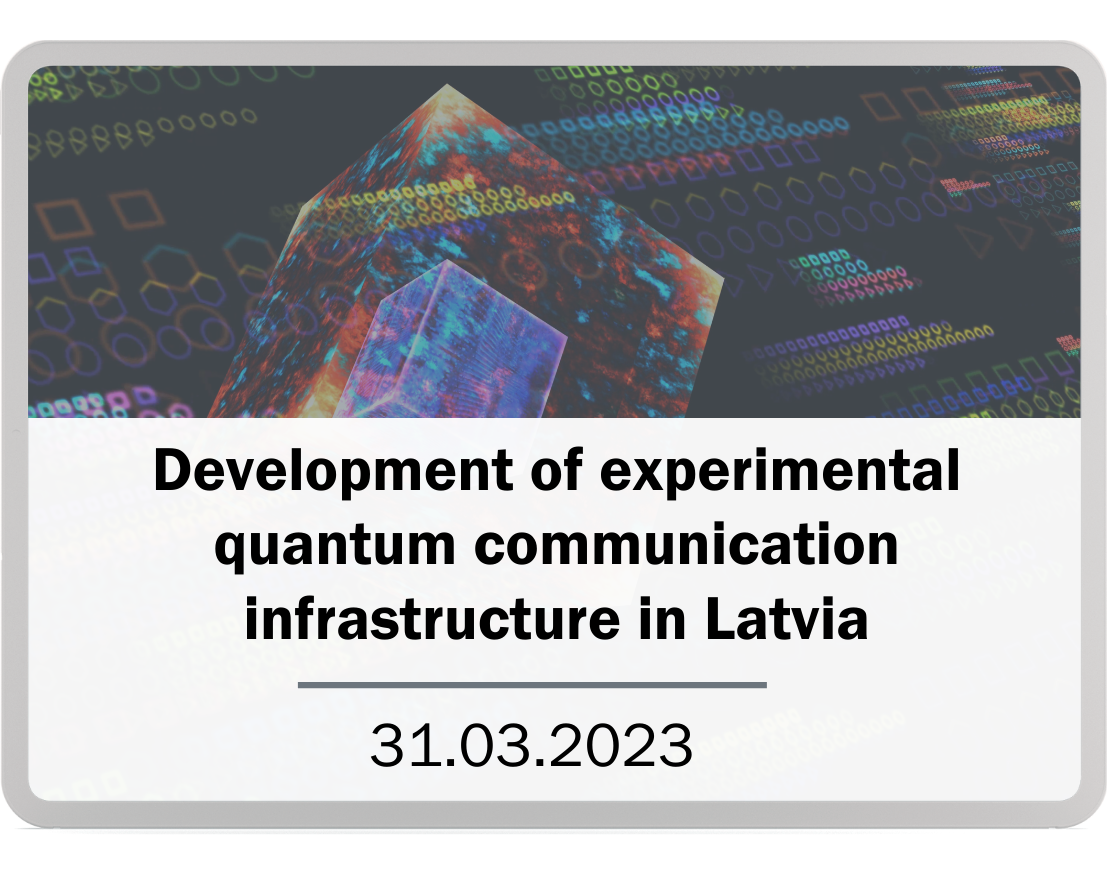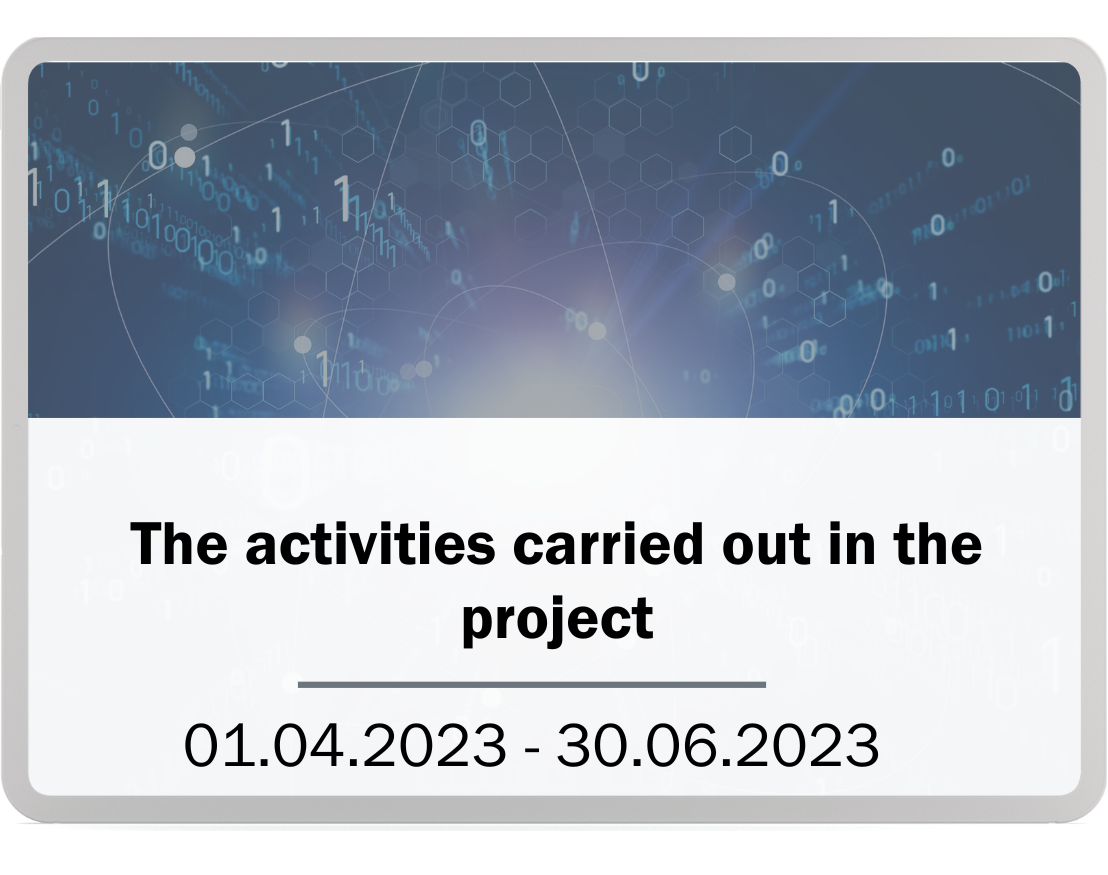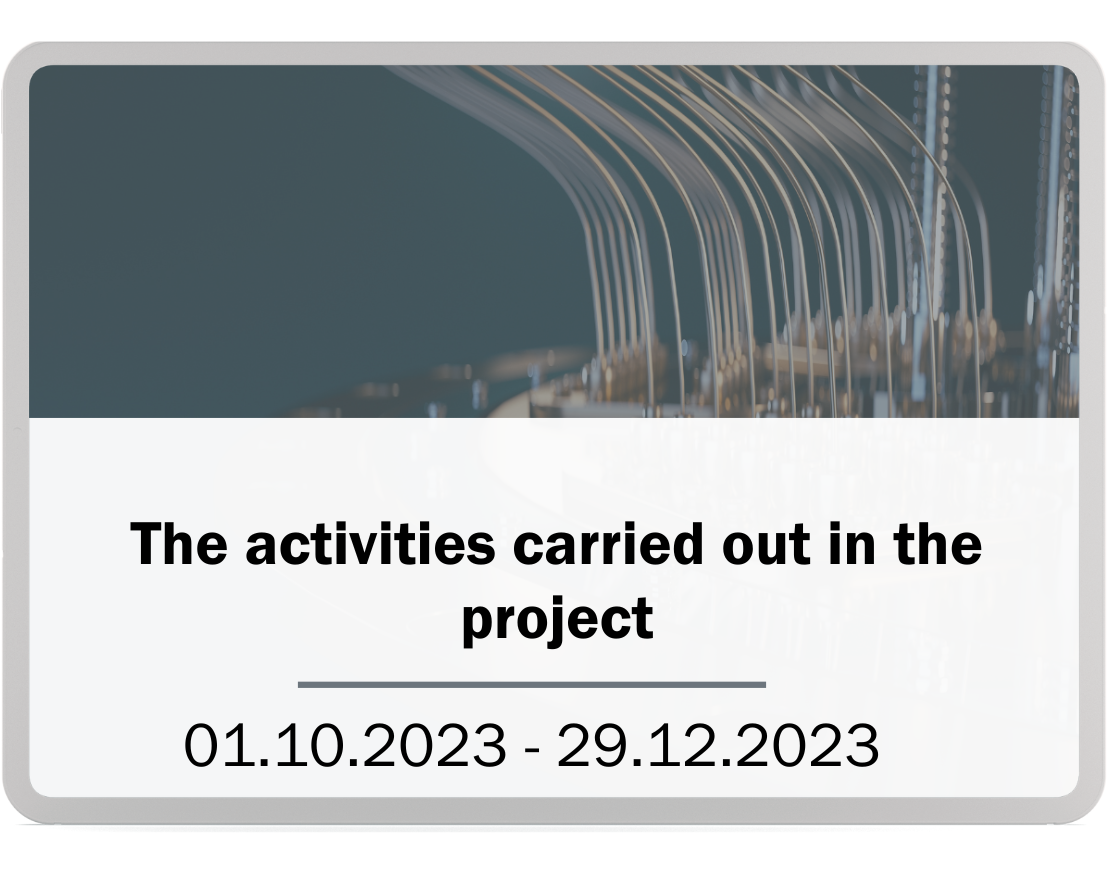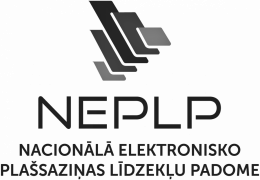Project title
Deploying advanced national QCI systems and networks
LATQN, ID No. 101091559
Description
On 11 February 2021, Latvia signed the EuroQCI declaration joining other European countries to build a quantum communication infrastructure spanning the EU and its overseas territories (EuroQCI). As of now, all 27 EU Member States have committed to working together alongside the European Commission and the European Space Agency (ESA) to build the EuroQCI with the aim of increasing the scientific and technological capacity of the EU, the competitiveness of quantum technologies and production. The Declaration sets out the objectives of building cooperation between EU Member States to explore how to create an integrated quantum secure communication infrastructure that enhances the scientific and technological capabilities of the EU, the competitiveness of quantum technologies and industry, and, with the increasing risk of cyber threats in the coming decade, is safe from a cybersecurity point of view and promotes the strategic autonomy of the EU.
The activities carried out in the project will contribute to the overall objectives of the Digital Europe Programme, as the Quantum Communication network will be used to ensure safe use of services for the needs of public authorities, private companies, and individuals. The project concerns cybersecurity, one of the areas covered by the Digital Europe Programme.
The project is directly linked to objective 3 “Cybersecurity and reliability” of the Digital Europe Programme, as it will involve investments in advanced cybersecurity equipment, infrastructure, and science, which are essential to protect the infrastructure of electronic communications networks and the Digital Single market. The project will cover part of Digital Europe objective 4 “Advanced Digital skills”, as the project will provide user training in the use of quantum technologies in cybersecurity. The objective and expected results of the project will directly address the priority of the Digital Europe Programme – modernisation of European public administration, as the results of the project can be used to provide public services based on new technologies and knowledge.
As a result of the Project, a national level experimental QKD network will be developed, including integration in the existing communications networks of the Project partners. The experimental QKD network will consist of an infrastructure QKD backbone (public and closed parts), where quantum encryption solutions will be integrated. A trusted node software solution for managing data exchange within public and closed networks will be implemented.
Project partners
Four beneficiaries (partners) are involved in the implementation of the project:
- Leading partner and coordinator – SJSC “Latvia State Radio and Television Center” (LVRTC)
- State sector partner – SJSC “Elektroniskie sakari” (VAS ES)
- Private sector partner – LLC “Tet”
- Research and scientific partner – Institute of Mathematics and Computer Science, University of Latvia (ICMS UL)
Activities
- Deployment of national infrastructure QKD backbone
- Integration of QKD into communication networks and development of government data processing applications
- Testbed for Secure QKD backbone gateway for wireless networks, including 5G (use case)
- Secure data transmission for healthcare sector data (use case)
- Secure data transmission for finance sector data (use case)
- Long-distance QKD solutions research activities (use case)
- Dissemination, training and publicity activities for various user groups
Project timeframe
The term of the project implementation is 30 months from 01.01.2023 to 30.06.2025.
Funding
The implementation activities of the Project “Development of experimental quantum communication infrastructure in Latvia” by VASES is co-funded by the European Union under Grant Agreement No. 101091559 and by the Ministry of Environmental Protection and Regional Development (Cooperation Agreement No. IKT/57/2023).
Total budget is 8 061 380.00 EUR, of which co-funded by the European Union: 4 030 690.00 EUR (50% of the total eligible costs of the project).

The European Union is not responsible for the content of this page.

















